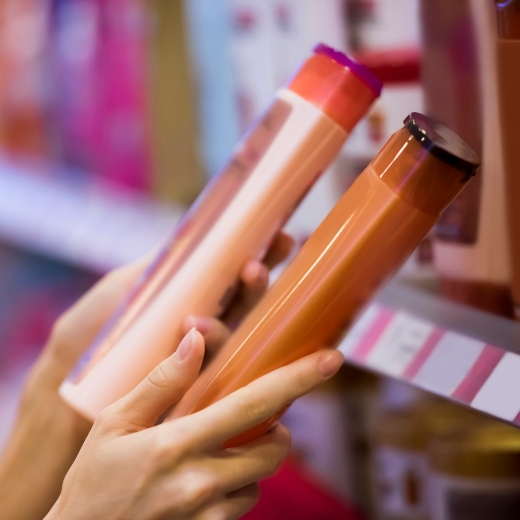Finding private label shampoo or shampoo manufacturers in the USA to produce your custom-made hair care products has been made easier these days. With a few taps on the keyboard and hovering around the internet, Google will provide you with a wide list of wholesale shampoo suppliers and manufacturers near you. However, as easy as it sounds, as an experienced entrepreneur, you know that this is just the tip of the whole process.
Yes, shampoo manufacturers can easily reproduce the haircare formula that you supply to your consumers but making sure that you are not compromising the quality that your brand provides can be a little difficult.
4 Things Important Things to Look in a Shampoo When Starting Your Own Haircare Product Line
To demystify the process and help you make the right choices, here are some of the very important things that you can look into before you make a contract with your shampoo manufacturer.
1. Made from Natural Ingredients
Of course, it’s important that you know what your shampoo is made from – get to know what you are putting into the scalps of your consumers because human hair does not only serve as a protecting shield of the scalp, it also plays a big role in physical attractiveness to the perception of beauty.1
You may include the best natural ingredients like aloe vera, ayurvedic herbs, holy basil, argan oil, moringa, and some hydrating oils.
Also keep track of the harmful ingredients that might have been already added to your private label shampoo. Beware of the sulfates, preservatives, irritants, fragrances, and other chemicals that might be coated as necessary ingredients – as these may bring harm to your consumers.
2. Formulated for Different Hair Types and Needs
When developing your custom-made shampoo, it is worth noting that hair type and scalp needs may vary from person to person. Keep in mind that a shampoo is not only meant to provide the cleaning that the scalp and hair needs, it should also serve to condition and beautify the hair.2 Hence, you have to consider those with curly and wavy hair, dyed hair, prone to dandruff, oily scalp – and how your shampoo can affect all of these.
Though this may sound a difficult thing to deal with, as an entrepreneur, you can actually look at this on a positive side: if no one size can fit all, why not offer a wide range of options for your customers? This then opens a bigger market and brighter opportunity for your hair care brand to thrive, right?
3. Packaging
Since you have opted for a private label shampoo, maybe you can start considering as well how you would want your custom-made shampoo to be presented to the market. Would you go for the conventional liquid shampoos that come in plastic containers or would you want to create a more sustainable impact on the environment and go for the alternative in bar shampoos? What would best represent your brand? How would you want your consumers to view your haircare products?
4. Quality
Most importantly, make sure to choose a private label shampoo that has FDA registered facilities and has been certified by GMP, USDA, Organic, HACCP, and Cruelty-Free International – like all the haircare products of The Omnium Group.
Now is the best time to start your own hair care product line. If you are looking for a shampoo manufacturer here in North Carolina & New York, don’t hesitate to contact us now. Let’s work together in bringing to life the quality hair care products that your consumers deserve!
References:
2 D’Souza P, Rathi SK. Shampoo and Conditioners: What a Dermatologist Should Know? Indian J Dermatol. 2015 May-Jun;60(3):248-54. doi: 10.4103/0019-5154.156355. PMID: 26120149; PMCID: PMC4458934.
1 Chiu CH, Huang SH, Wang HM. A Review: Hair Health, Concerns of Shampoo Ingredients and Scalp Nourishing Treatments. Curr Pharm Biotechnol. 2015;16(12):1045-52. doi: 10.2174/1389201016666150817094447. PMID: 26278532.
